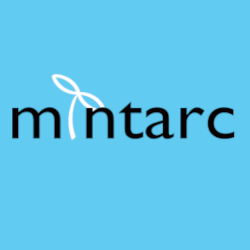Server Operating Systems
From Mintarc Forge
FOSS/OSS Server Operating Systems
These server operating systems are designed to manage network resources, provide services to multiple users, and ensure high reliability and security in various computing environments. A detailed exploration of server operating systems, their characteristics, benefits, and notable examples.
Characteristics
Multi-User Support
- FOSS server operating systems are built to accommodate multiple users simultaneously. They efficiently manage user sessions and allocate resources to ensure smooth operations even during peak usage times. This capability is essential for environments where numerous clients need access to shared resources.
Resource Management
- These operating systems excel in managing hardware resources such as CPU, memory, and storage. They optimize performance by efficiently allocating resources based on demand, ensuring that applications run smoothly without bottlenecks.
Scalability
- FOSS server operating systems are designed to scale easily with increasing workloads. They can handle additional users or services without significant performance degradation, making them suitable for growing organizations or applications.
Reliability
- Reliability is a critical feature of server operating systems. Many FOSS options include built-in mechanisms for failover, backup, and recovery, ensuring continuous operation even in the event of hardware failures or software issues.
Security Features
- Robust security measures are integral to FOSS server operating systems. They provide sophisticated user access controls, allowing administrators to set permissions for users and groups, thus preventing unauthorized access to sensitive data. Regular updates and community-driven security audits further enhance their security posture.
Networking Capabilities
- FOSS server operating systems come equipped with comprehensive networking features that enable communication with other computers in the network. They support various networking protocols and facilitate services like file sharing, internet hosting, email hosting, and more.
Cost-Effectiveness
- Being open-source means these operating systems are generally free to use, which significantly reduces the total cost of ownership compared to proprietary alternatives. Organizations can allocate resources elsewhere while benefiting from high-quality software.
Benefits of FOSS Server Operating Systems
- Flexibility and Customization: Users can modify the source code to tailor the OS to their specific needs, allowing for unique configurations that proprietary solutions may not support.
- Community Support: A vibrant community often surrounds these operating systems, providing forums, documentation, and collaborative troubleshooting.
- Transparency: The open-source nature allows users to inspect the code for security vulnerabilities or performance issues, fostering trust in the software.
- Wide Range of Software: FOSS server operating systems typically have access to extensive repositories of software packages that can be easily installed and managed.
Notable Examples of FOSS Server Operating Systems
- Debian: Known for its stability and extensive package management system (APT), Debian is widely used in server environments due to its reliability and long-term support options.
- Ubuntu Server: A variant of Ubuntu tailored specifically for server use, it offers a user-friendly experience along with robust community support and extensive documentation.
- Rocky Linux: Created as a community-driven replacement for CentOS after its shift to CentOS Stream, Rocky Linux aims to provide a stable enterprise-level platform suitable for production environments.
- AlmaLinux: Another fork of CentOS designed to be a drop-in replacement for RHEL (Red Hat Enterprise Linux), AlmaLinux offers long-term support and stability for enterprise applications.
- FreeBSD: While not a Linux distribution, FreeBSD is a Unix-like OS known for its performance and advanced networking capabilities. It’s widely used in server environments due to its robustness and scalability.
- OpenBSD: Emphasizing security above all else, OpenBSD is known for its proactive security measures and code correctness. It is often deployed in firewall and security appliance scenarios.
- NetBSD: Known for its portability across different hardware platforms, NetBSD is suitable for various computing environments including servers.
